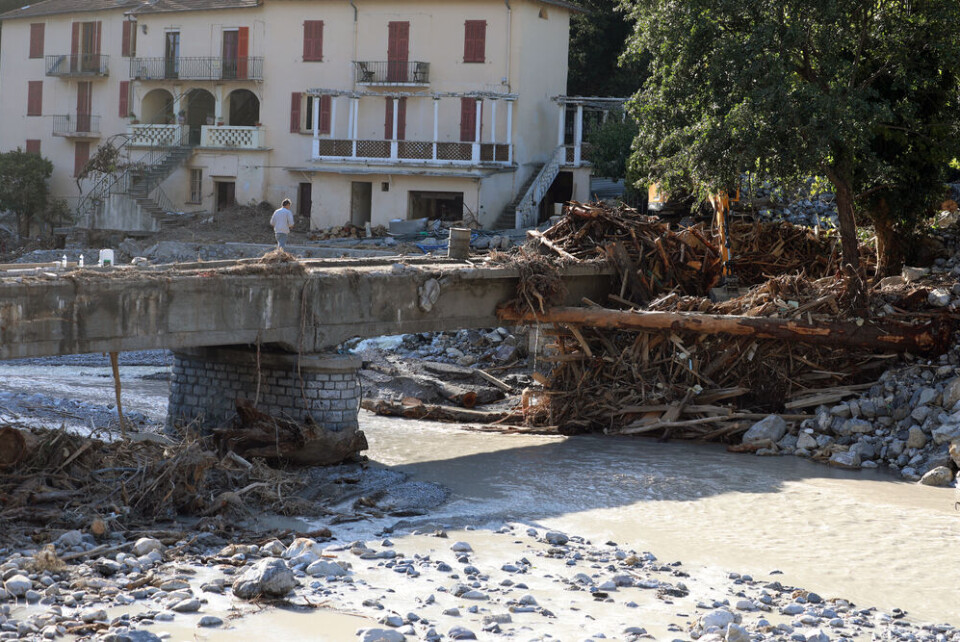-
Pistes closed, confinement orders: Alpine resorts deal with avalanche risk
Increased snowfall this weekend may cause further closures as busy school holiday season continues
-
French weekend weather forecast February 14-15: snow returns as temperatures plummet
River flood warnings are likely to remain in place across the south and the west
-
Second death and homes evacuated as Storm Nils batters south-west France
Hundreds of thousands of homes left without power. Red flood alerts remain in place
France’s ‘catastrophe naturelle’ insurance system: how to claim
This specific compensation covers serious weather events such as earthquakes, floods and landslides and can only come after a government decree

France has a system in which compensation to cover the costs incurred by a natural disaster is paid out of a special fund, paid into by insurance companies and the government.
But in order for your insurance company to compensate you for this type of claim, the government has to officially declare a natural disaster has taken place in the commune where you live.
Once the order has been published in the Journal officiel, you have to file a claim with your insurer within 30 days.
We explain the process here.
What is natural disaster insurance?
The assurance catastrophe naturelle is an insurance that allows you to be compensated for damage caused by natural disasters (earthquake, flood, drought, landslide, etc.).
This mainly relates to damage to your property.
Natural disaster insurance is included in all multi-risk home insurance policies (assurance multirisques habitation), which the vast majority of homeowners in France have.
In fact, insurers cannot refuse to include natural disaster coverage in your plan. If they do, you can appeal to the Bureau Central de Tarification (BCT) within 15 days of their refusal.
Conditions to receive natural disaster insurance compensation
There are two conditions. The first is that you must have natural disaster coverage in your insurance plan, as stated above. The second is that a governmental decree must declare a natural disaster in your area.
This will be published in the Journal officiel, and it will specify exactly what communes and zones are affected by the natural disaster, the period of time in which the disaster took place, and the damages caused by it.
A disaster is declared after the mairies of communes hit by a disaster make a demand for this recognition to the prefecture.
The government recommends that people affected by a natural disaster report it to their insurance company and then send a copy of that notice to their local mairie.
It is likely that many people in your commune will be in touch with the mairie if a natural disaster strikes, so this step is not strictly necessary, but it could help the mairie in gathering evidence to establish a natural disaster has taken place.
In any case, it will be useful to contact your insurer as soon as possible after a natural disaster strikes to discuss with them your options.
You will not be able to make a claim for damages caused by a natural disaster until it is officially declared as such but your insurer will likely be able to offer you advice, and may even contact your mairie for you to report that you have discussed the event with them.
Making a claim
Once a natural disaster is declared for your area, you will have 30 days to make a claim on your insurance.
There is no extension of the deadline for second-home owners, but some second-home insurance policies will allow for an expert to visit your property and assess the damage if you were away when the natural disaster occurred.
You can make a claim by phone call, email or text, whichever method is easier.
But you should also confirm the claim with the insurance company by registered mail with acknowledgement of receipt (lettre recommandée avec accusé de réception).
You must indicate in the letter the following elements:
- Your full name and address
- Insurance contract number
- Description of the loss (nature, date, time, place)
- A list of all lost or damaged objects, with documents proving the existence and value of the goods (e.g. invoices, photographs)
- Damage to third parties (e.g. if a tree on your property has fallen and caused damage to a neighbour's house)
When documenting the damage to your property, consider pictures that offer an overview of the damage, and then photograph each piece of furniture individually.
You should also keep any objects that are damaged that you are claiming for so that they can be examined by the insurer, if necessary.
Note, if you are intending to repair the damage to your property yourself, you should keep all the invoices you get when purchasing materials.
It should also be noted that indirect costs, such as rehousing and loss of earnings, are not necessarily included in natural disaster coverage unless this is specified elsewhere in your insurance contract.
Timeframe for compensation
You should be compensated within three months of your claim.
Related articles
France floods: what affected households need to do
Floods and landslide in southwest France: Disaster insurance granted
























